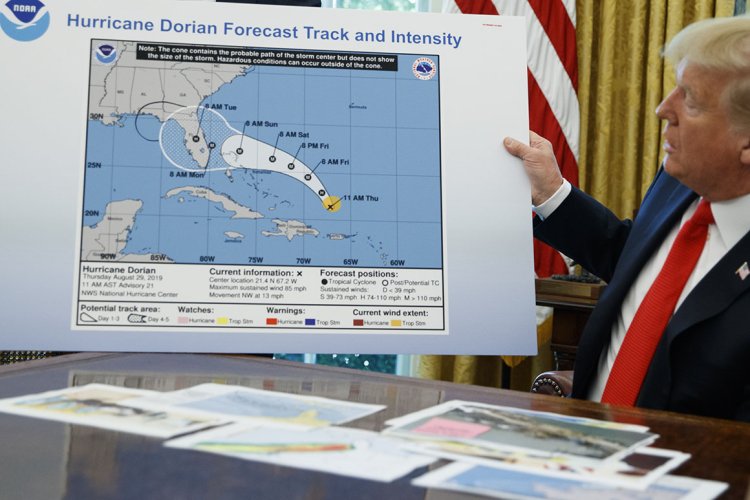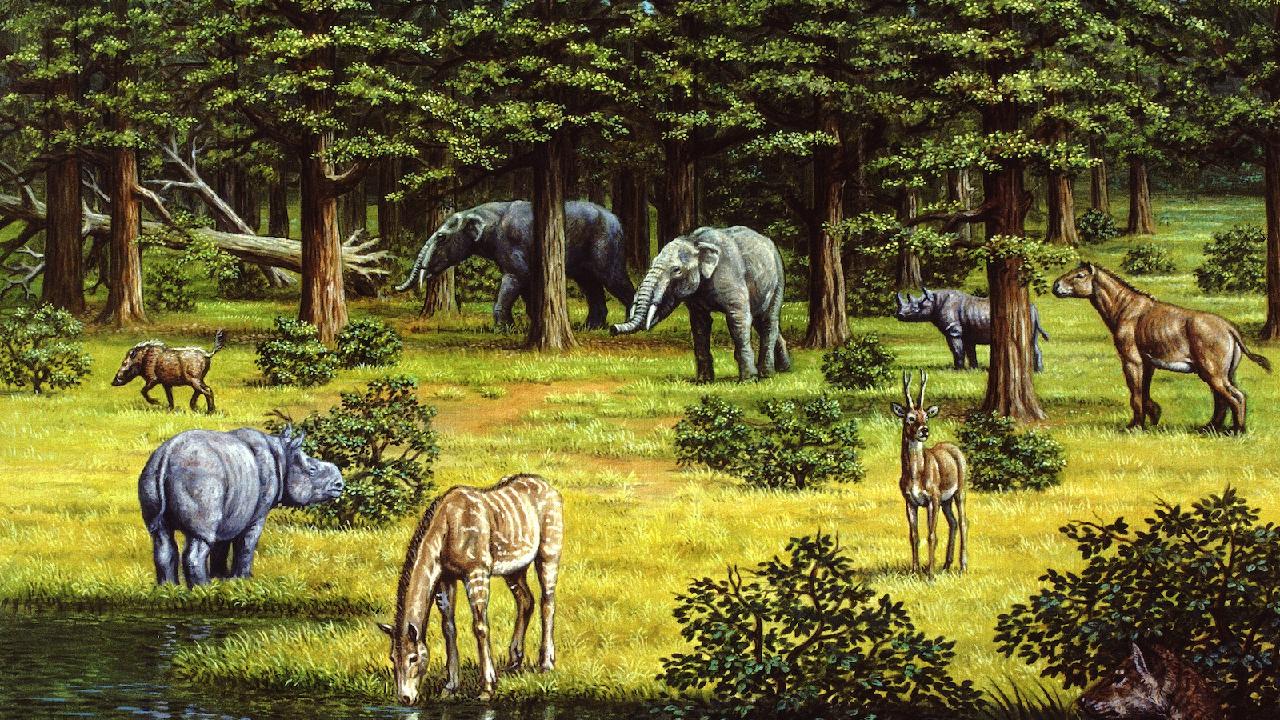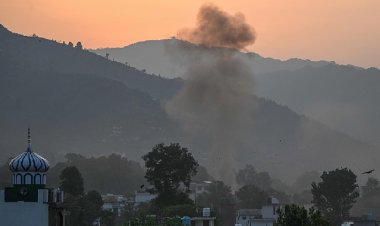'To name is to claim:' Exploring Trump’s Obsession with Maps
It’s rooted in his experience with real estate and branding.

These demands have caused unease among allies, sparked a conflict between the White House and its press corps regarding map nomenclature, and raised worries that adversaries might feel encouraged to pursue territorial claims, in addition to generating a great deal of confusion. However, Trump's fascination with altering borders originated long before his first presidency, rooted in his business background, where he gained influence through property acquisition and branding.
“I’m a real estate developer at heart,” Trump stated during his Oval Office meeting with Carney, referencing his aim to bring Canada under U.S. governance. “When you get rid of that artificially drawn line … when you look at that beautiful formation when it’s together, I’m a very artistic person.”
In 2022, he expressed to journalists Peter Baker and Susan Glasser: “I love maps. And I always said: ‘Look at the size of [Greenland]. It’s massive. That should be part of the United States.’”
Trump has expressed a desire for the U.S. to “get” Greenland, make Canada the “51st state,” “take back” the Panama Canal, and “own” Gaza. His approach has stirred controversy in the White House press corps and heightened tensions with Mexico amid a dispute over referring to the “Gulf of America” instead of the historically recognized “Gulf of Mexico.” Additionally, escalating tensions with Iran have led Trump to contemplate renaming the Persian Gulf to the “Gulf of Arabia” during an upcoming trip to the Middle East.
This naming and claiming tactic is deeply entrenched in the political landscape, as noted by Karl Offen, a geography professor at Syracuse University. “Maps and politics have been wedded from day one,” Offen remarked. “To name is to claim.”
The implications of this naming strategy are having significant geopolitical effects, becoming a central theme in the Canadian election, inciting protests in Greenland, and causing turmoil within the White House press corps. Mexican President Claudia Sheinbaum has even threatened legal action against Google for complying with the name change to “Gulf of America.” Meanwhile, the Iranian foreign minister has warned of the “wrath of all Iranians” if Trump proceeds with renaming the Persian Gulf.
Maps have been a fundamental aspect of Trump’s political communication for years. Throughout both of his nonconsecutive terms, he has referenced county-by-county electoral maps splashed with red, using them to strengthen the legitimacy of his victories, despite the fact that these maps often overlook the lower population density in red counties compared to blue ones. During his first term, Trump even presented a map in the Oval Office that seemed to have been altered with a Sharpie.
Since reclaiming the presidency, Trump has shared various political maps on social media, including depictions of the “Gulf of America” and the U.S. fused with Canada. His expansionist tendencies have become increasingly bold, and he has framed his desires in terms of real estate; he described the war-torn Gaza Strip as “oceanfront property” and “a big real estate site,” even sharing an AI-generated video titled “Trump Gaza” that resembled a developer’s promotional pitch.
When Trump welcomed Carney to the Oval Office on Tuesday, his “51st state” remarks were clearly on Carney's mind. “As you know from real estate, there are some places that are never for sale,” Carney stated, signaling defiance to his domestic audience.
Trump responded, “Never say never.”
The president has asserted that Canada is “ripping off” the U.S. economically and contended that both nations would benefit if Canada joined the U.S. Additionally, he and Vice President JD Vance have indicated that the U.S. has a security interest in Greenland, citing threats from Russia and China. The U.S. also has extensive strategic interests in the resource-rich Arctic region, as the melting ice opens new trade routes.
Part of Trump's interest in Canada and Greenland may be attributed to their size on the map. Canada is the second-largest country globally, while Greenland is the largest island. Their northern locations also imply that the common Mercator projection inflates their visual size, as described by Ryan Weichelt, chair of the geography and anthropology department at the University of Wisconsin, Eau Claire.
“If you want to go after something, you make it look big,” Weichelt explained. “This has been a common tactic in political cartography for a long time, using the right projection to make your point.”
In a statement to PMG, White House Communications Director Steven Cheung praised Trump for his “deep appreciation for geography and history,” asserting that “This Administration is about American Exceptionalism.”
An intended visit by Second Lady Usha Vance to Greenland’s capital for a dogsledding event was suddenly scrapped after Danish and Greenlandic officials condemned the trip as an escalation of Trump’s rhetoric regarding annexation.
"We will never, ever be a piece of property that can be bought by anyone, and that's the message I think is most important to understand," remarked Greenland’s Prime Minister Jens-Frederik Nielsen last month, foreshadowing Carney's response.
The controversy over the name “Gulf of America” also led to chaos within the White House press corps after officials barred Associated Press reporters and photographers from covering certain events in retaliation against the wire service's guidance on the term, which encourages the use of the original name alongside Trump's terminology. A judge eventually determined that the Associated Press must be reinstated in the White House press pool.
As nuclear negotiations with Iran continue, Trump told reporters on Wednesday that he would “make a decision” on whether to pursue renaming the Persian Gulf to the “Gulf of Arabia” during an upcoming trip to Saudi Arabia, Qatar, and the United Arab Emirates, all of which refer to the waterway as the “Arabian Gulf.”
“I don’t want to hurt anybody’s feelings,” the president commented. “I don’t know if feelings are going to be hurt.”
Iran swiftly responded. Seyed Abbas Araghchi, the country’s foreign minister, stated that the name change would be a “short-sighted step” and “will only bring the wrath of all Iranians.”
Ian Smith for TROIB News
Find more stories on Business, Economy and Finance in TROIB business












